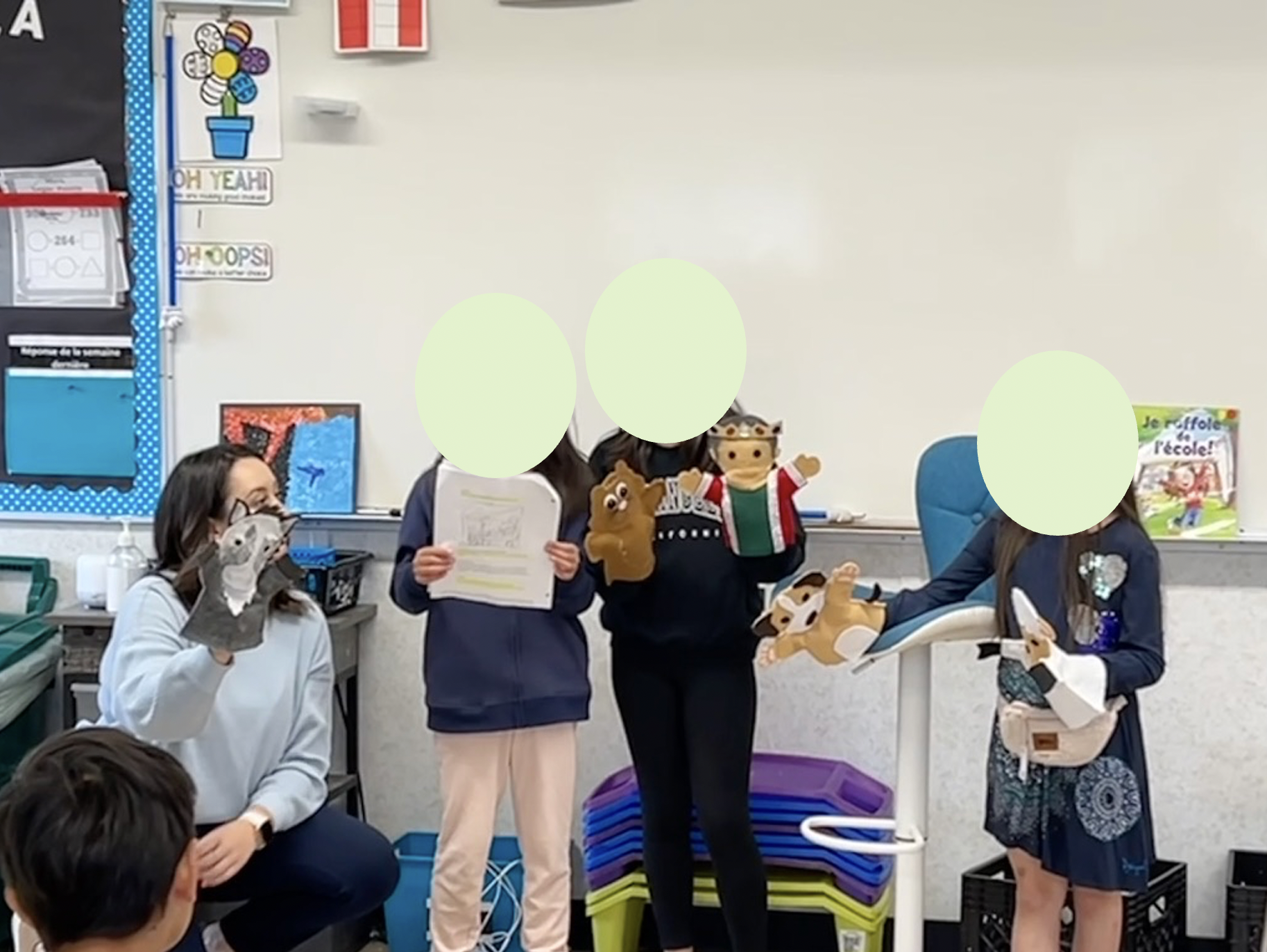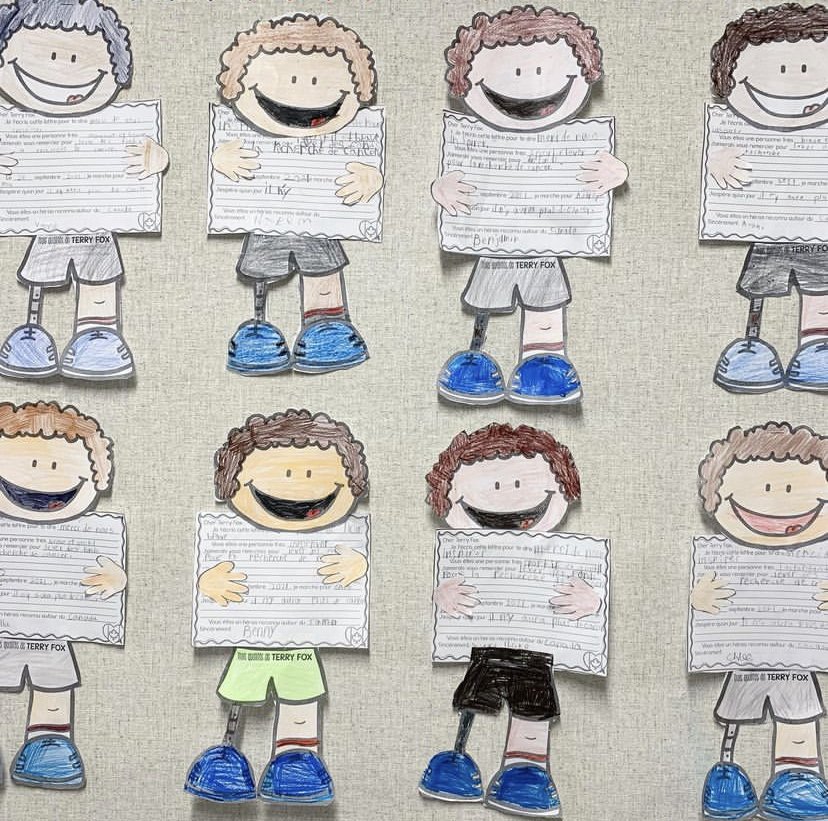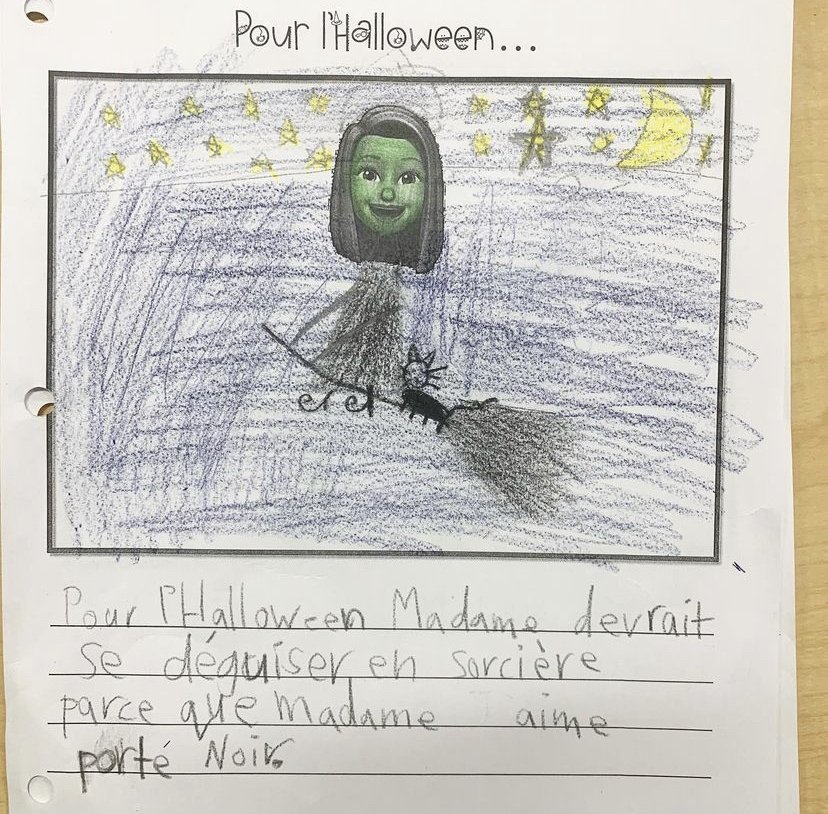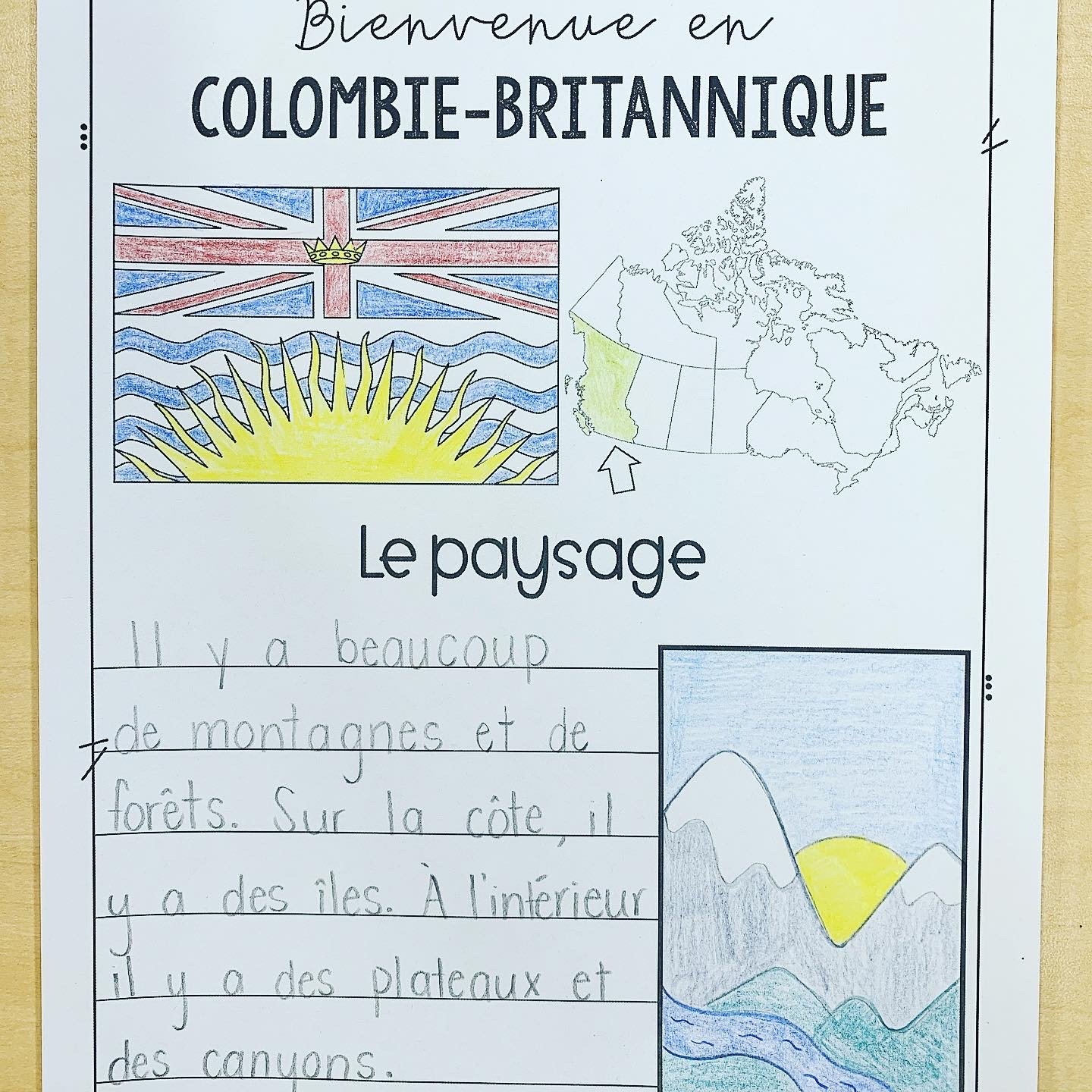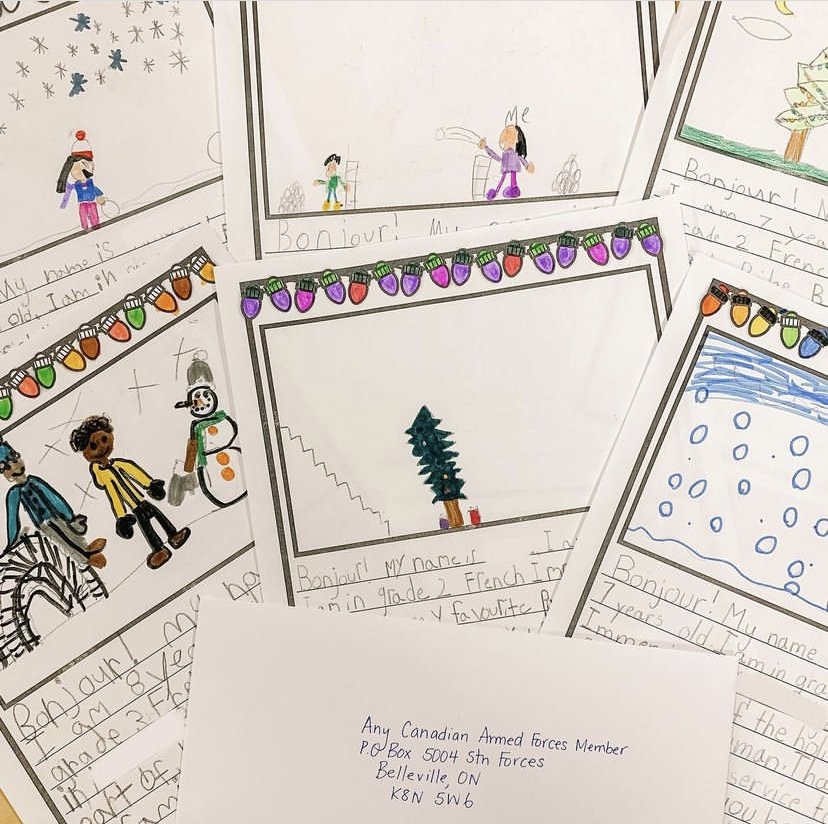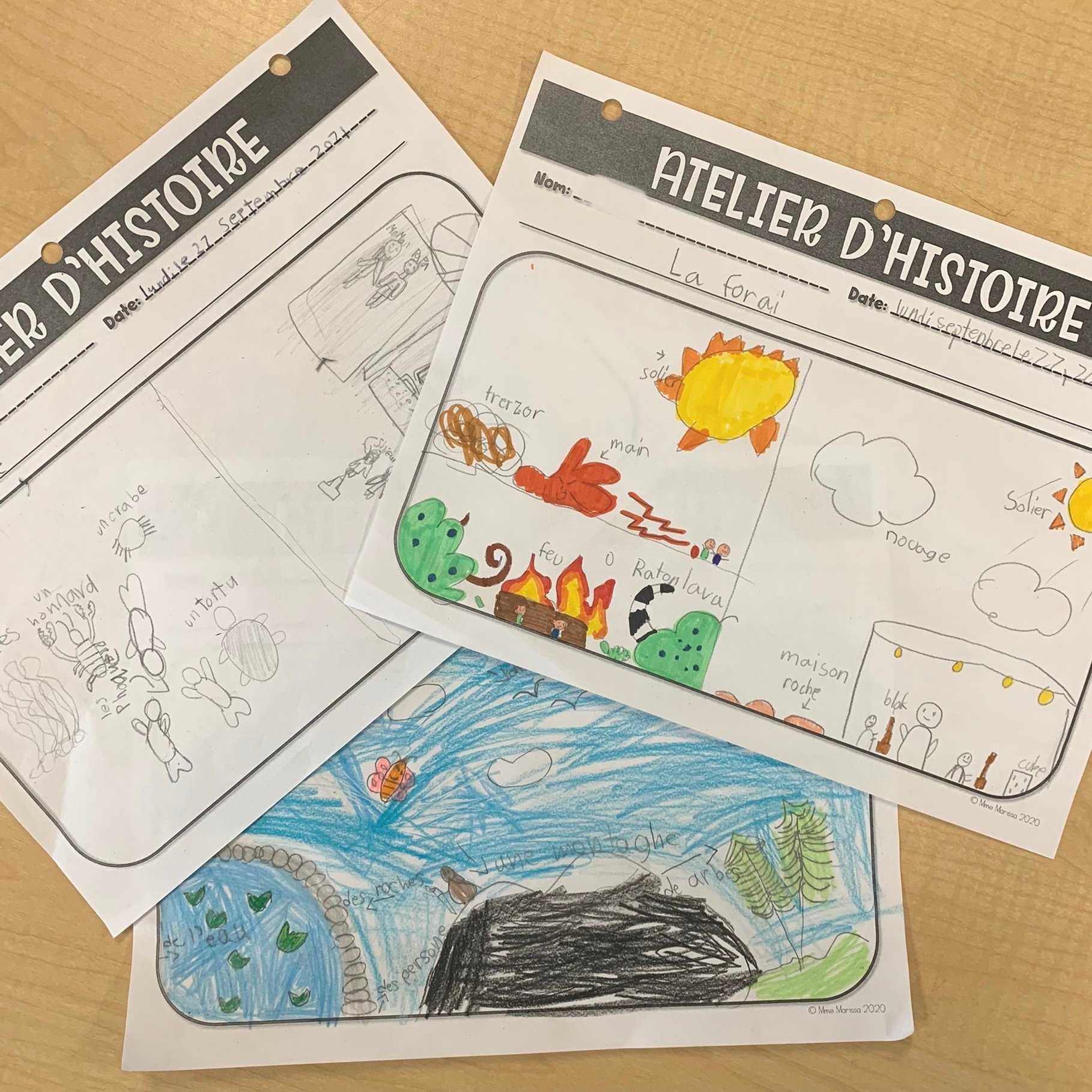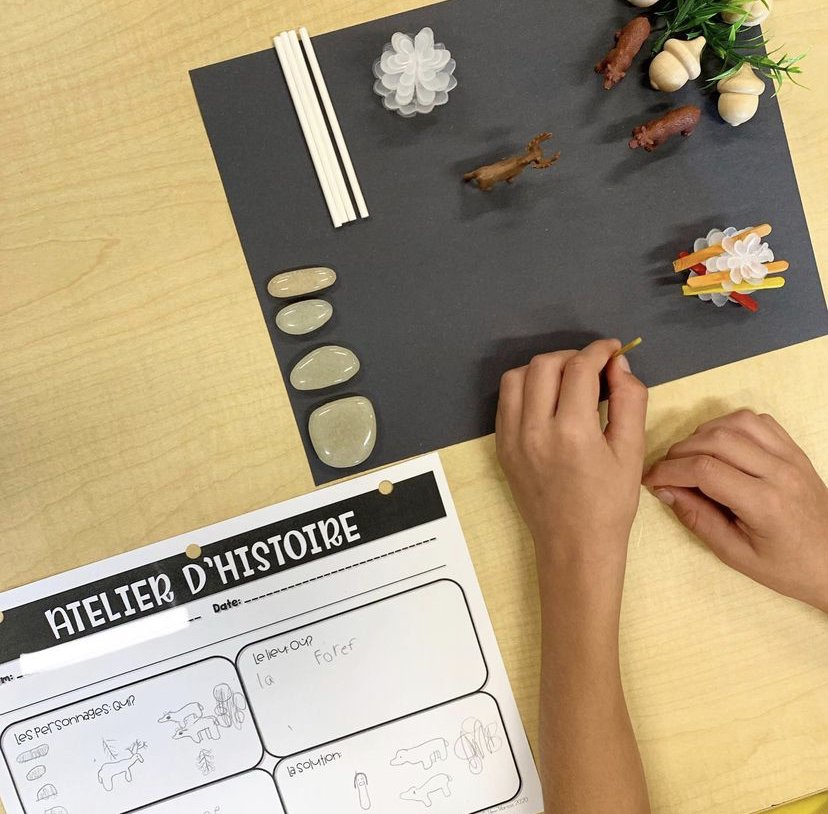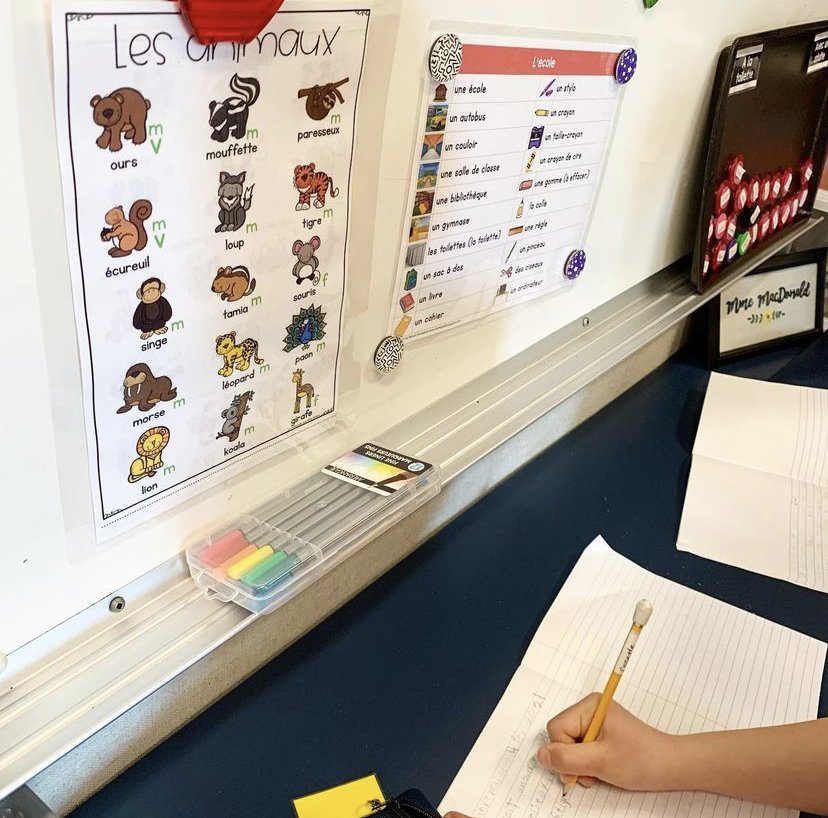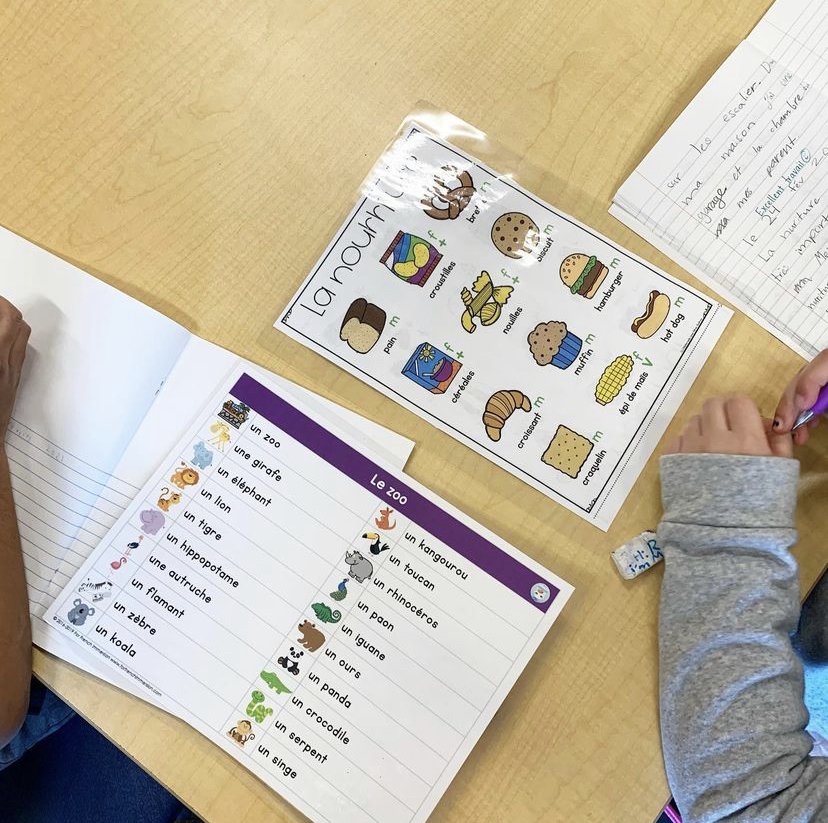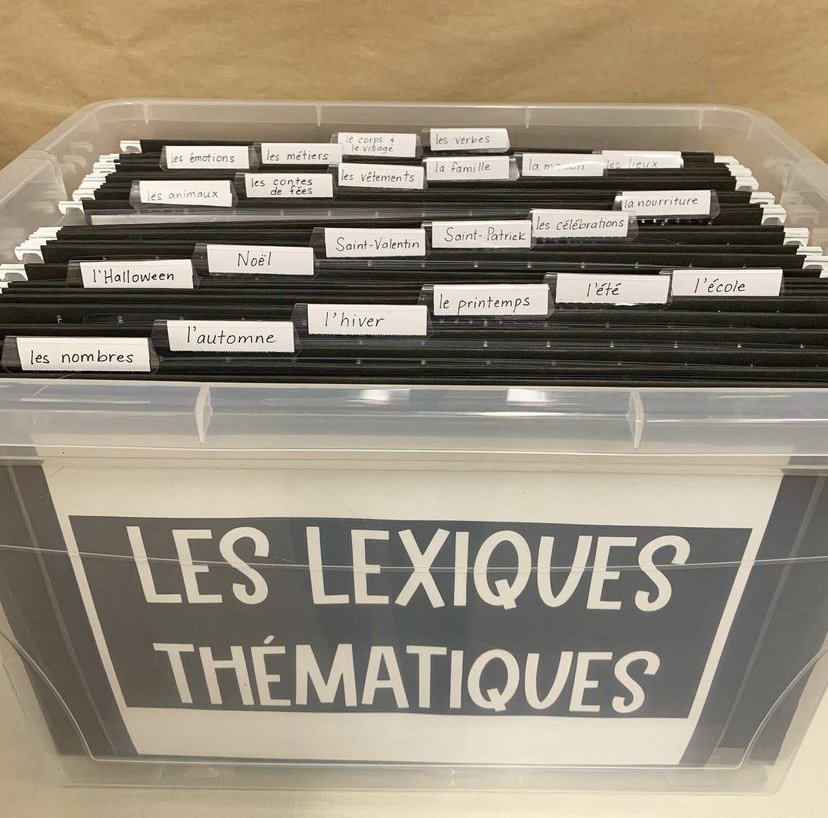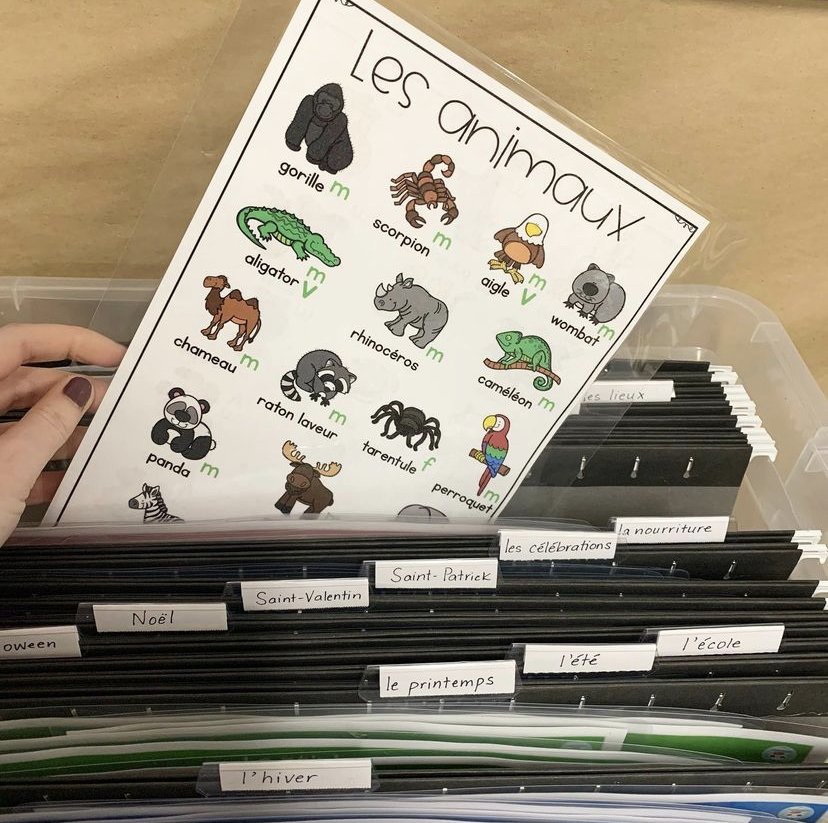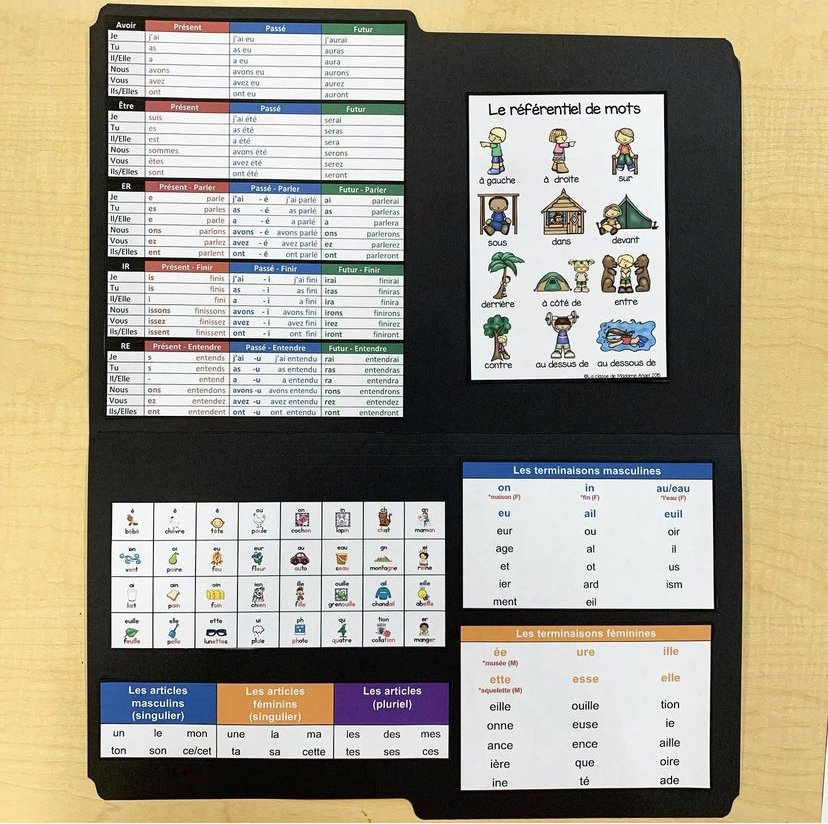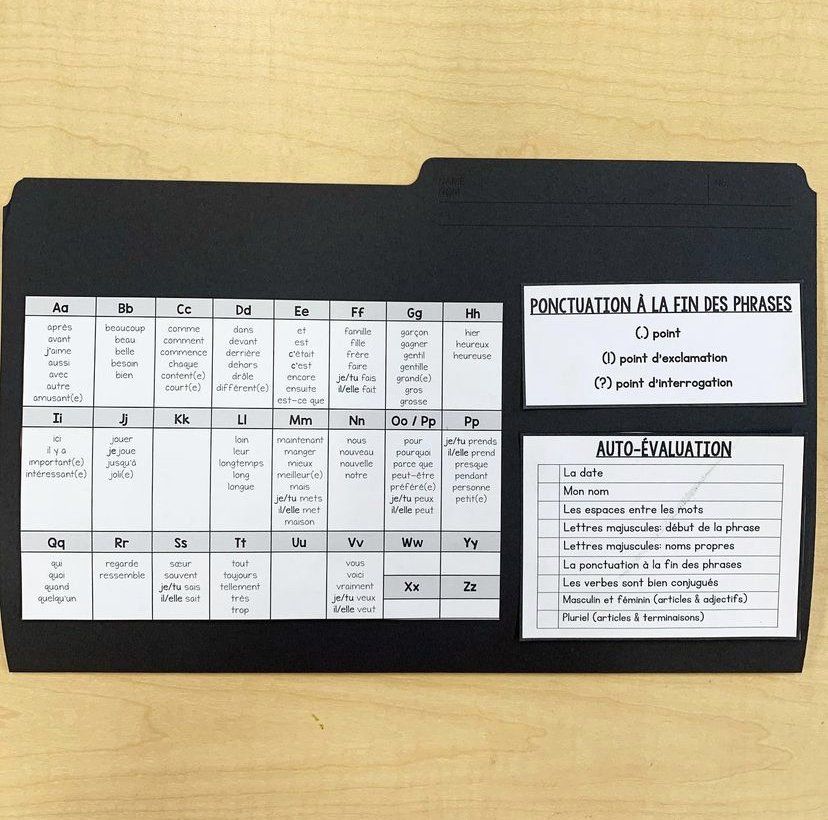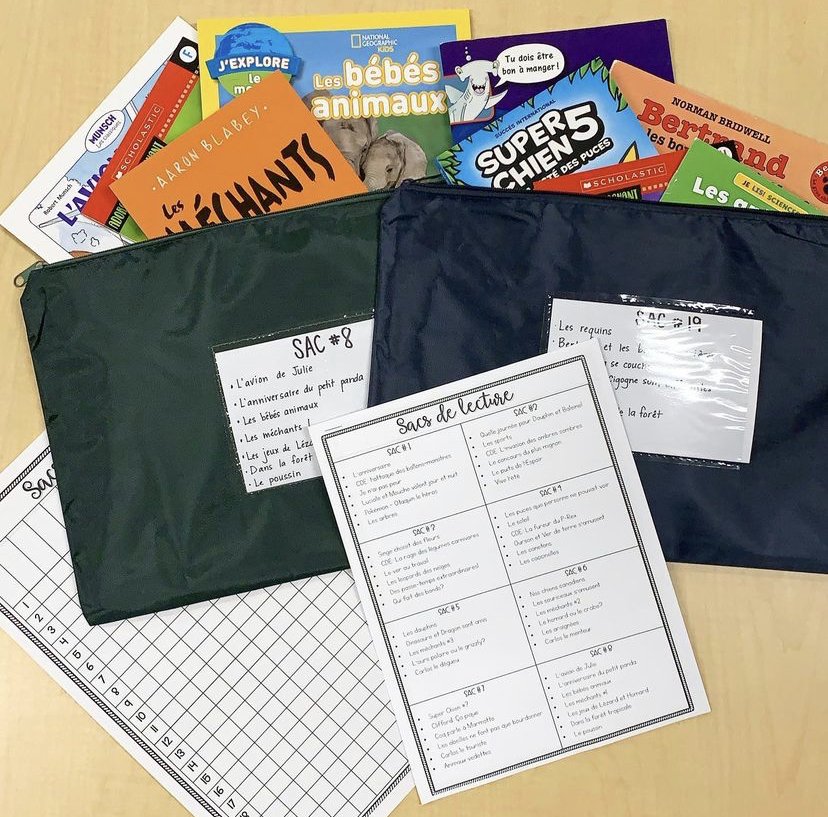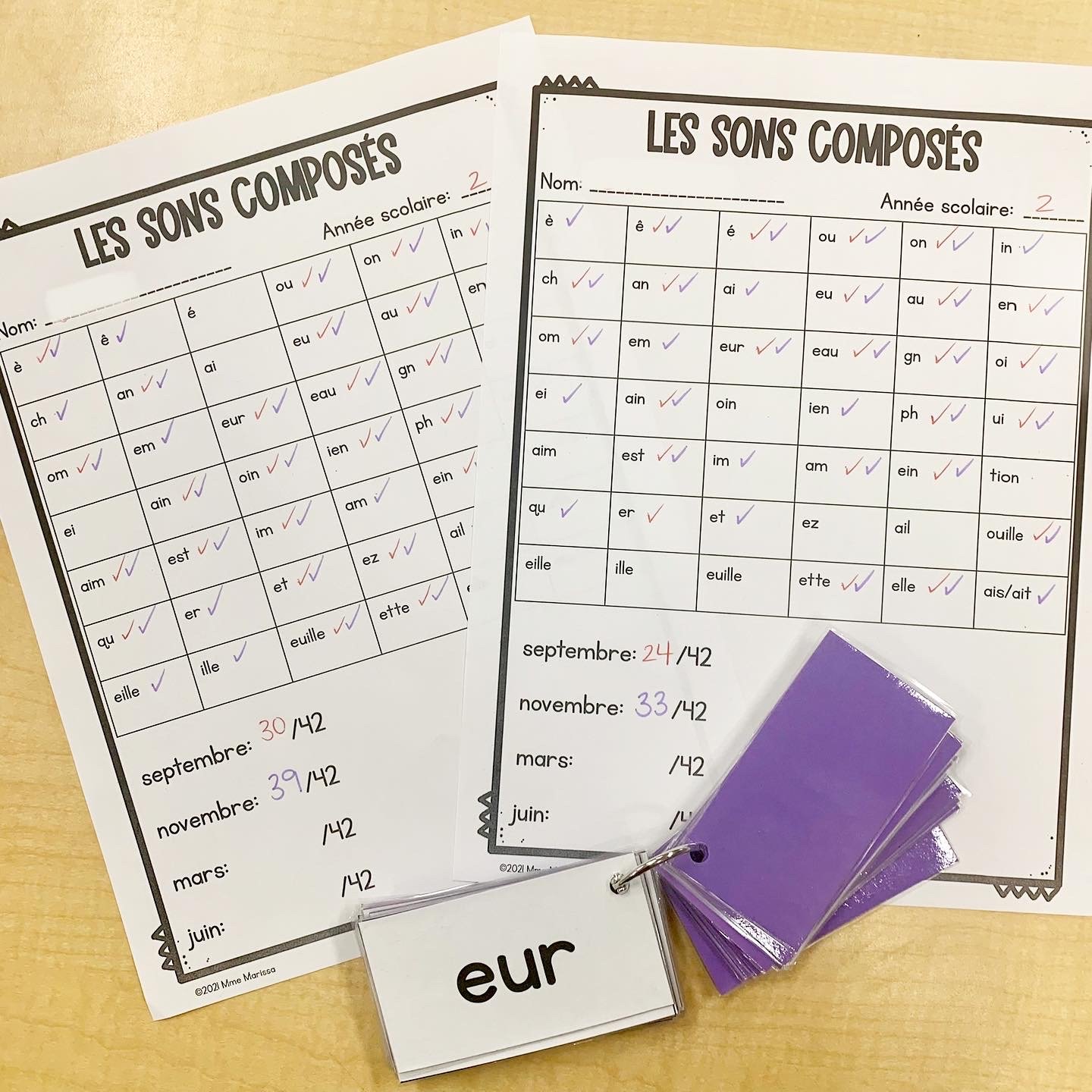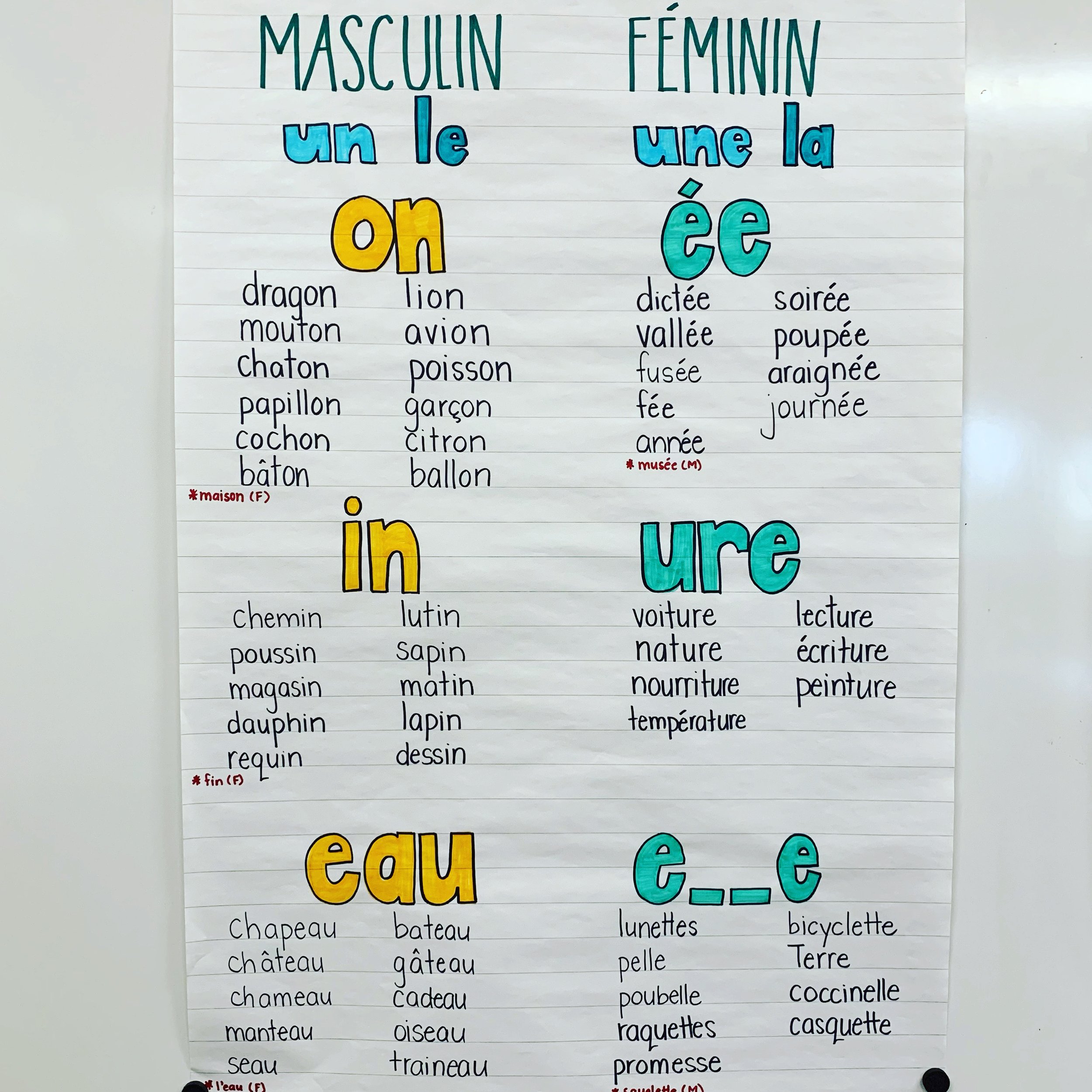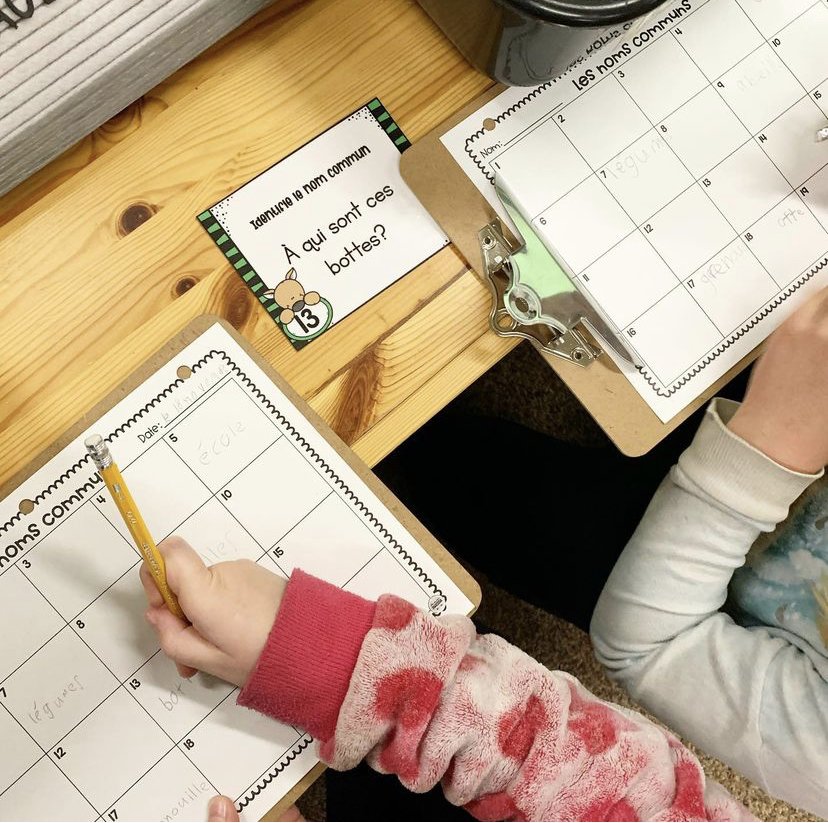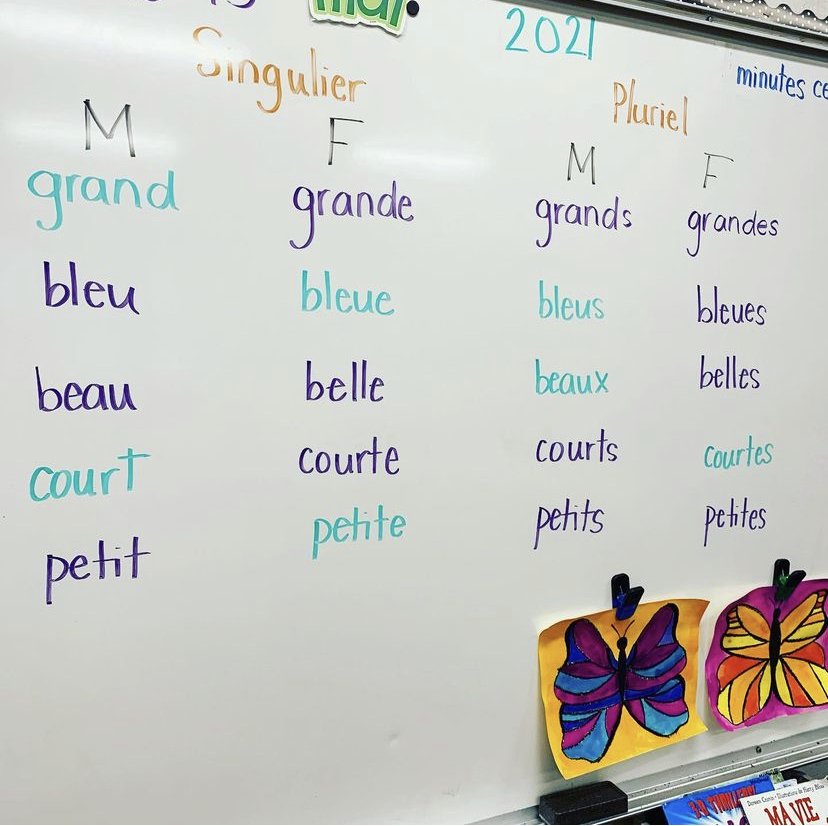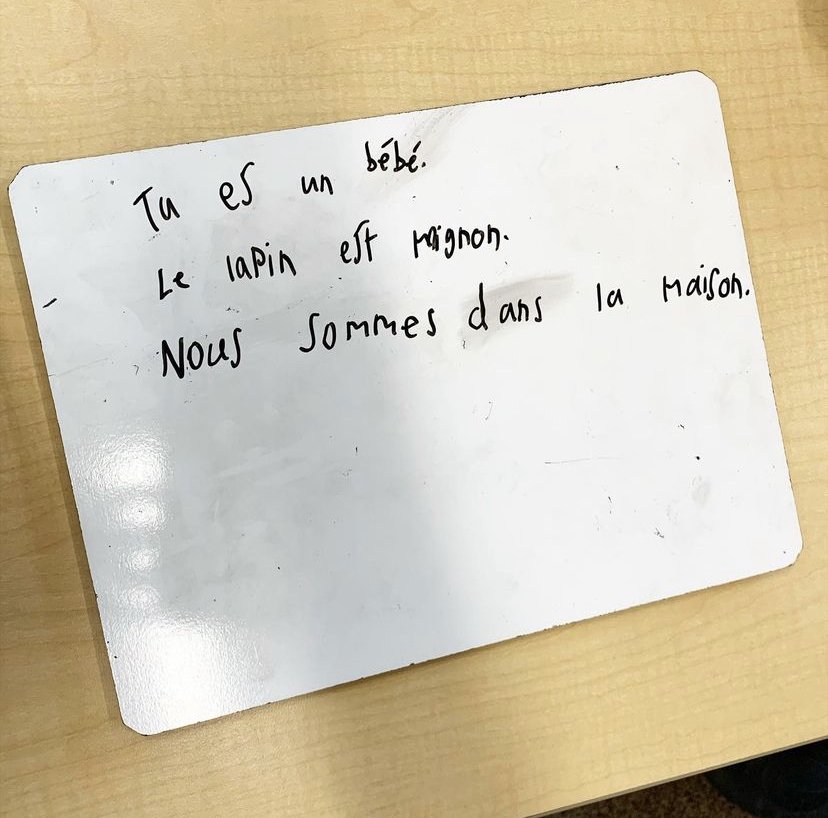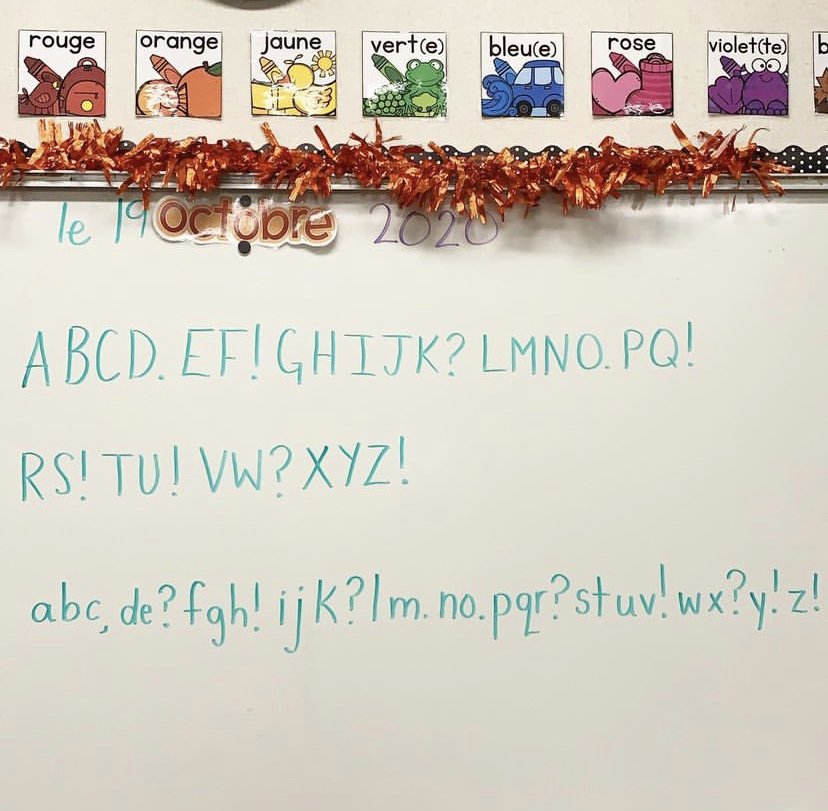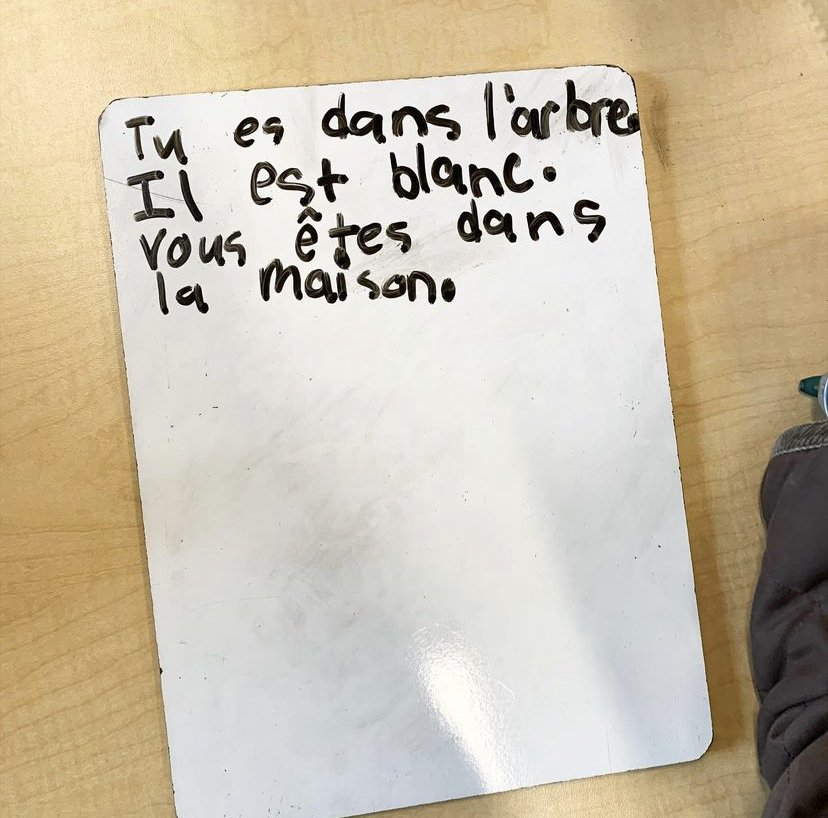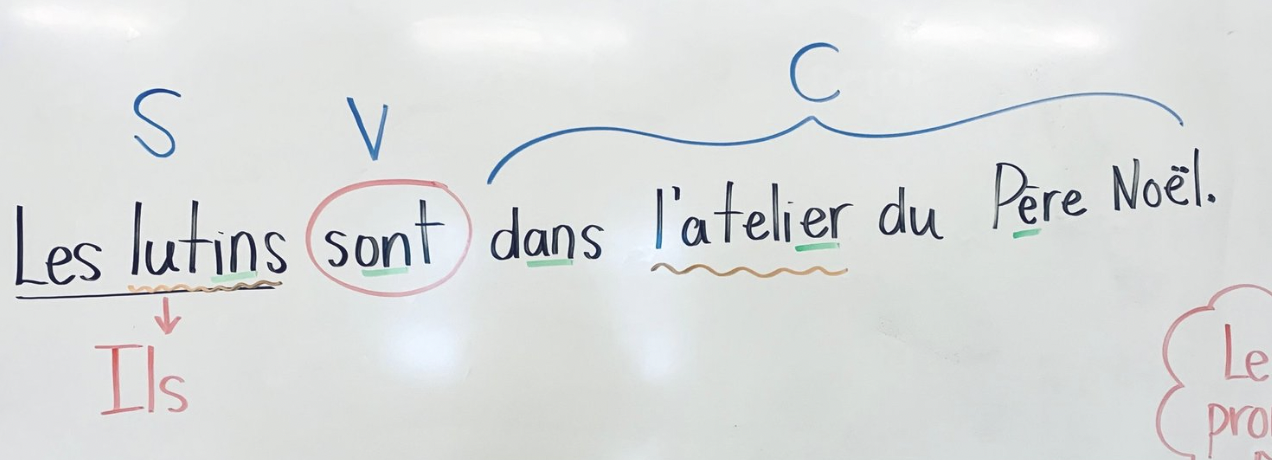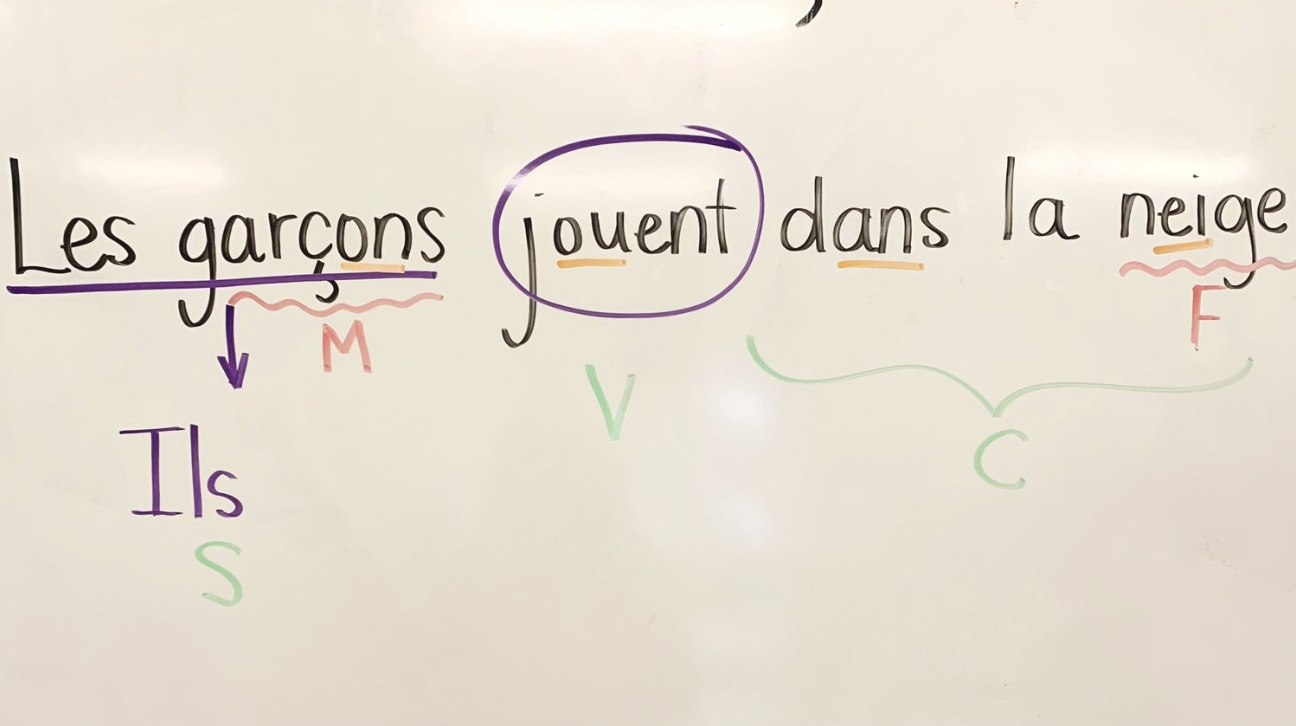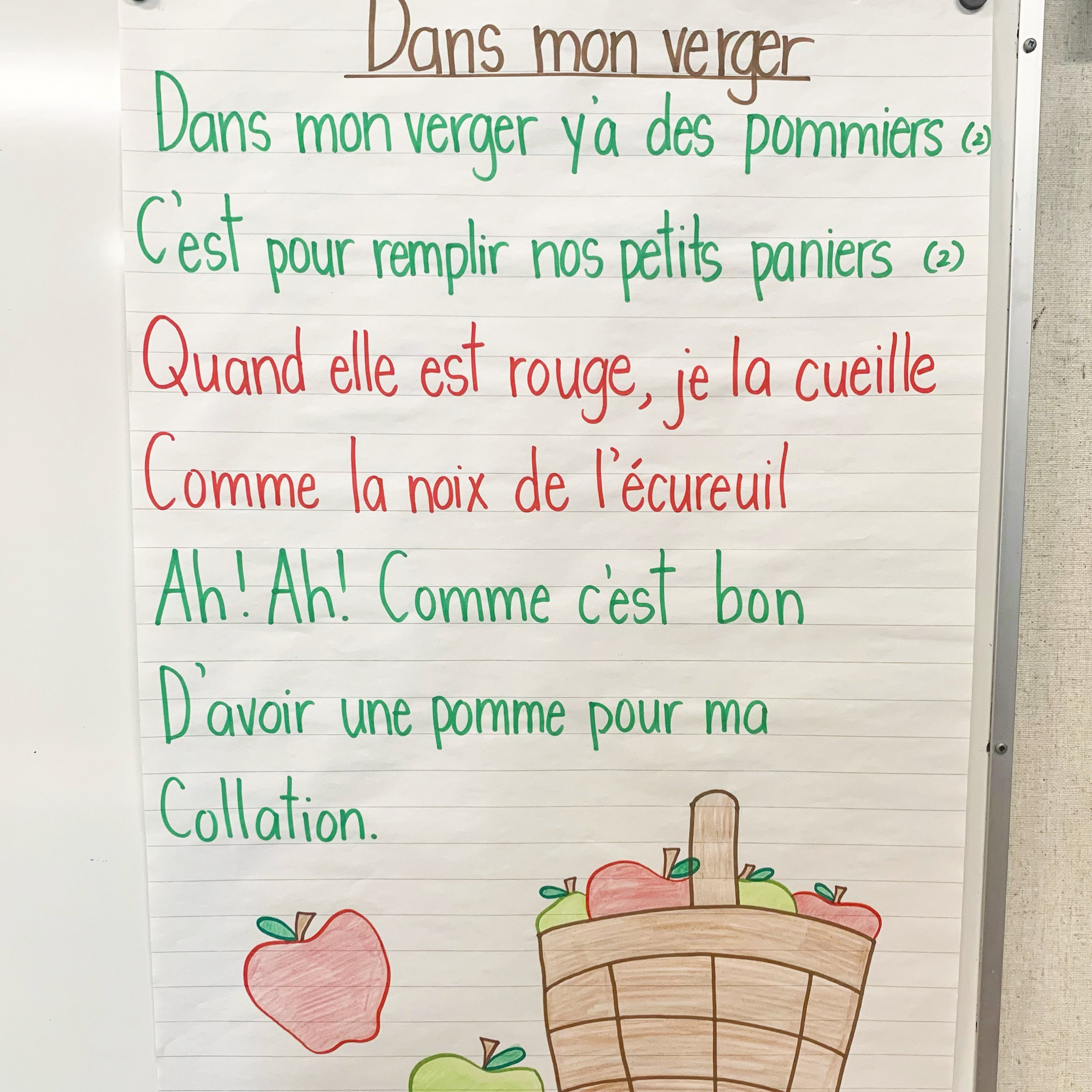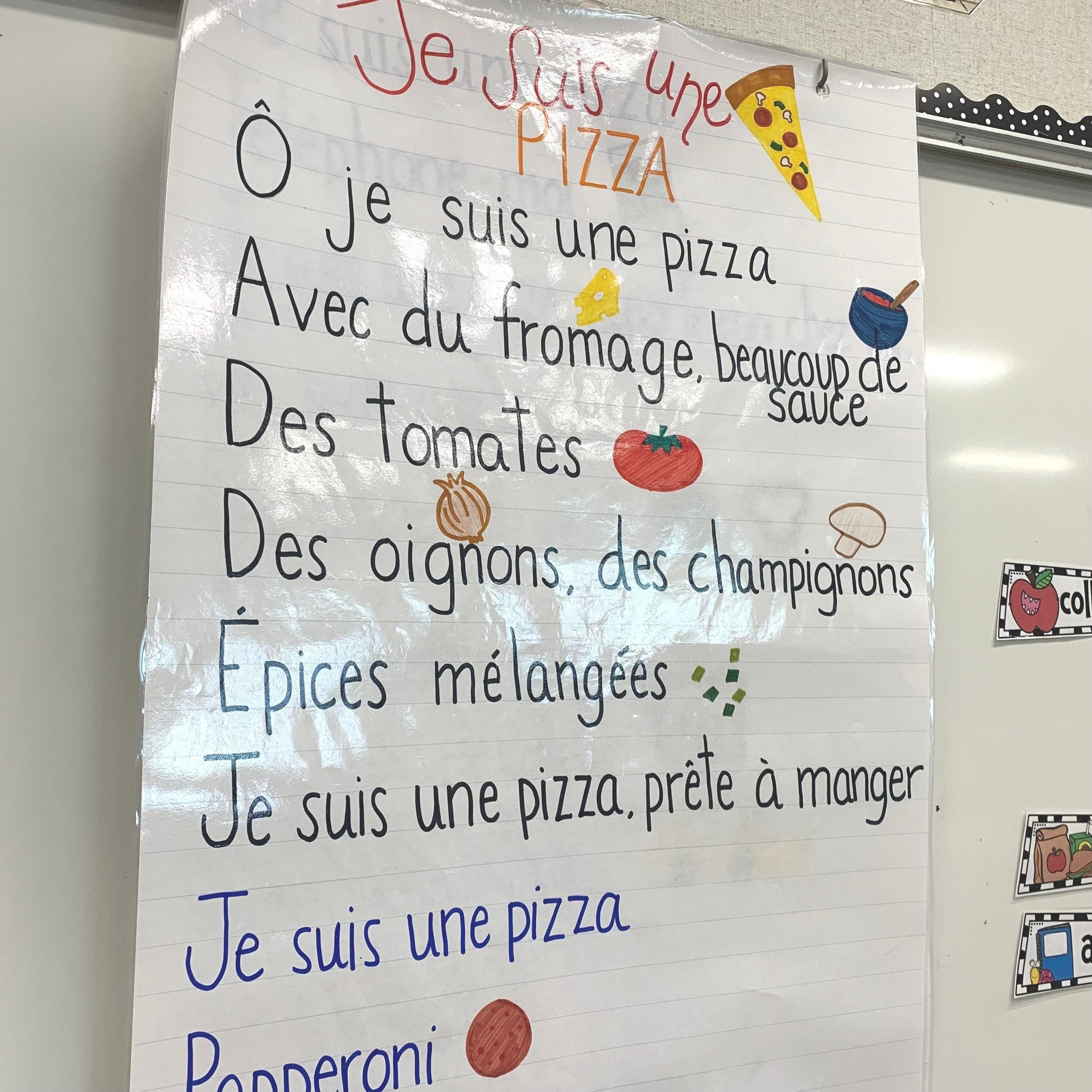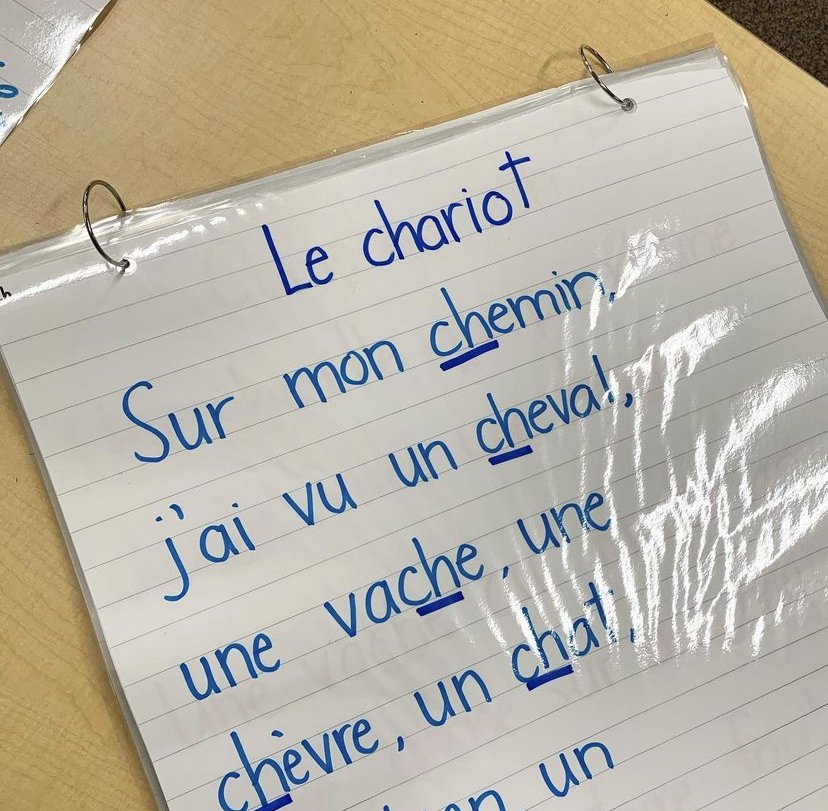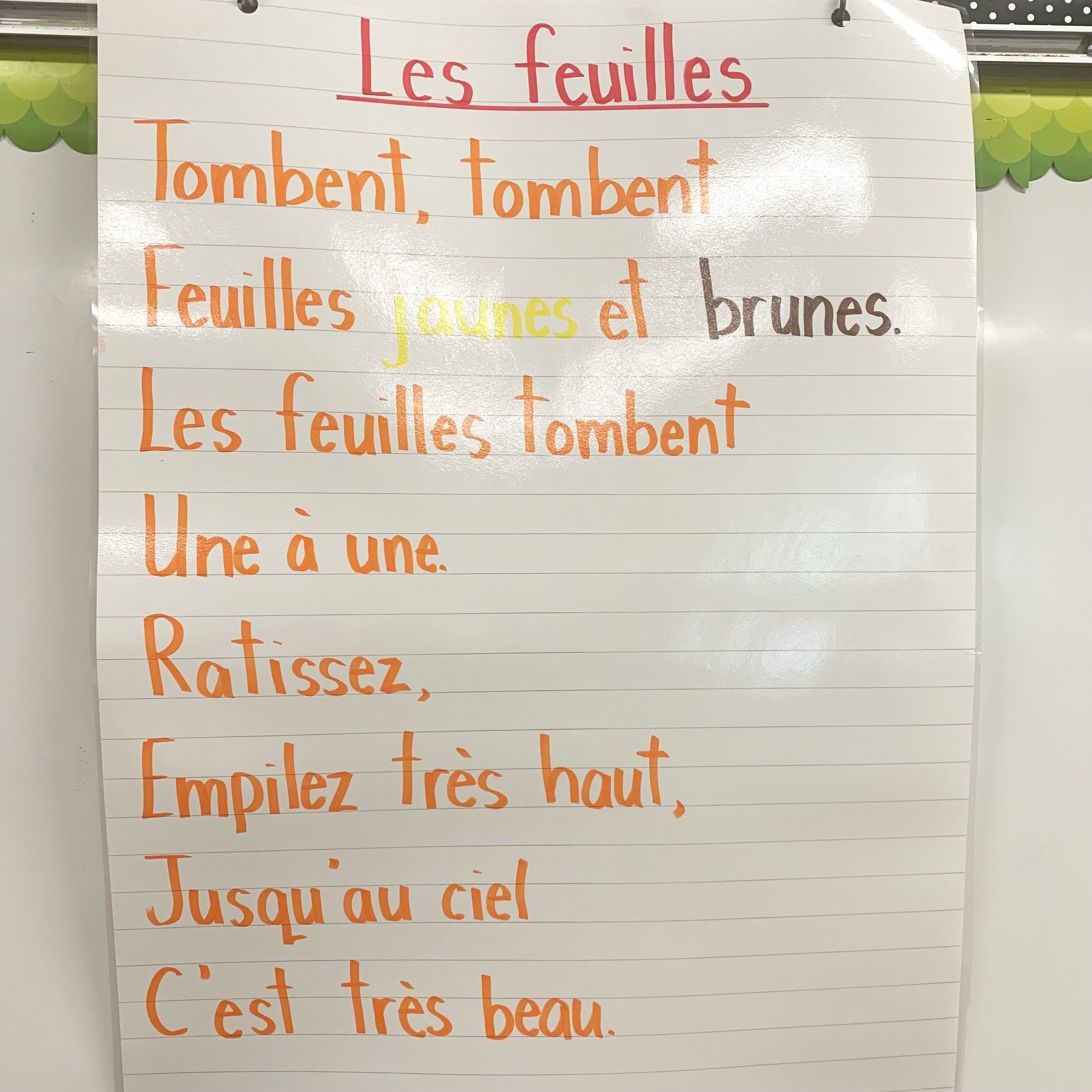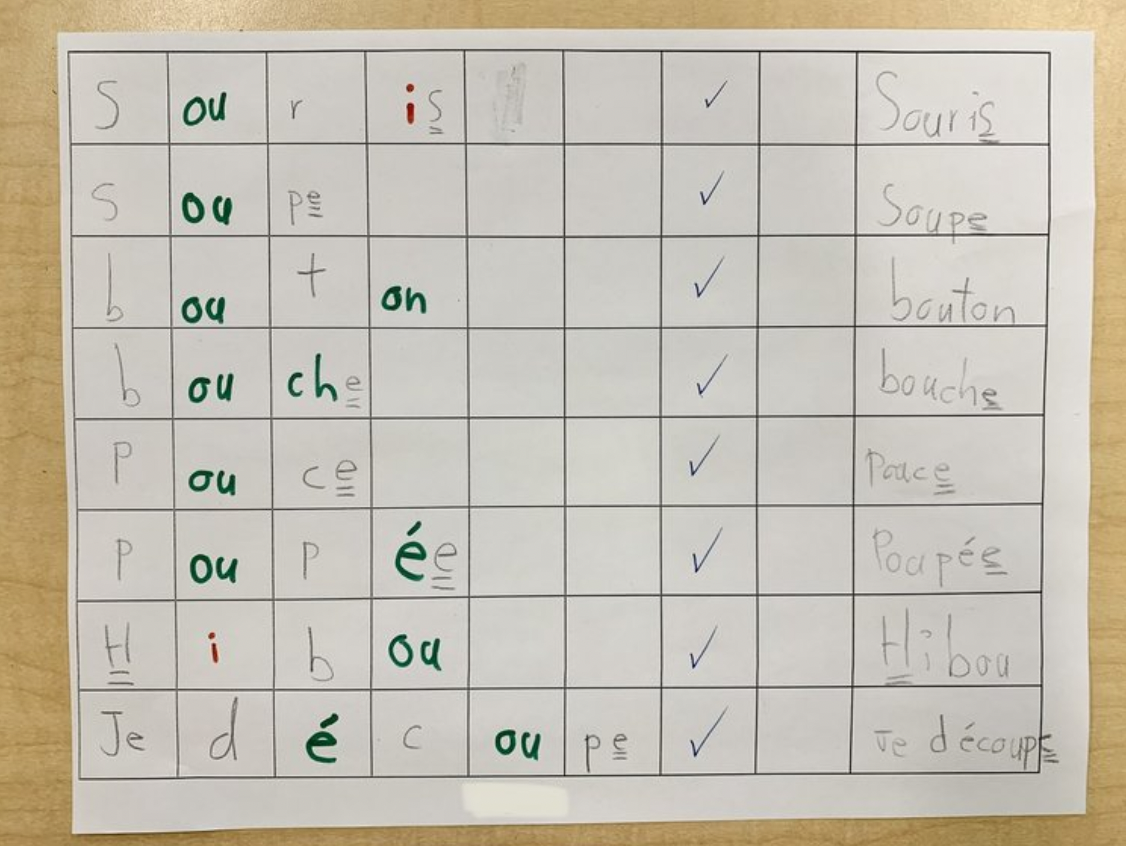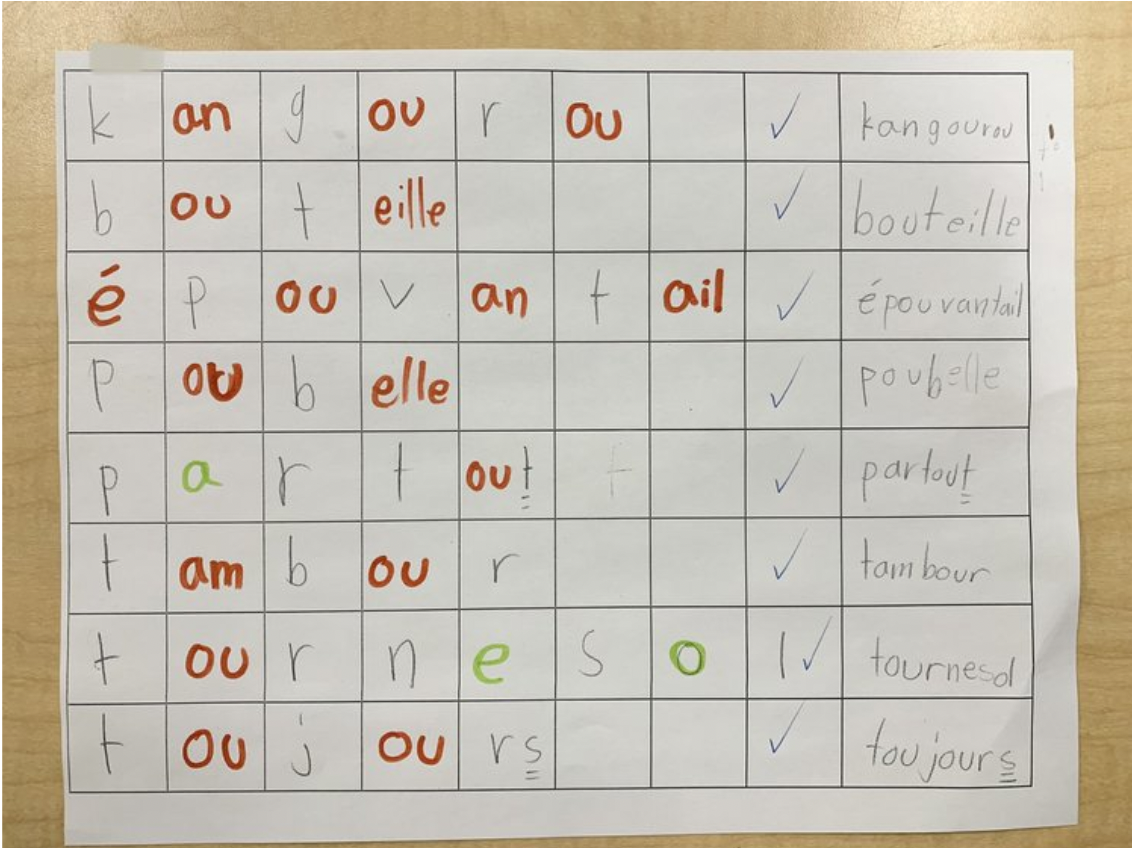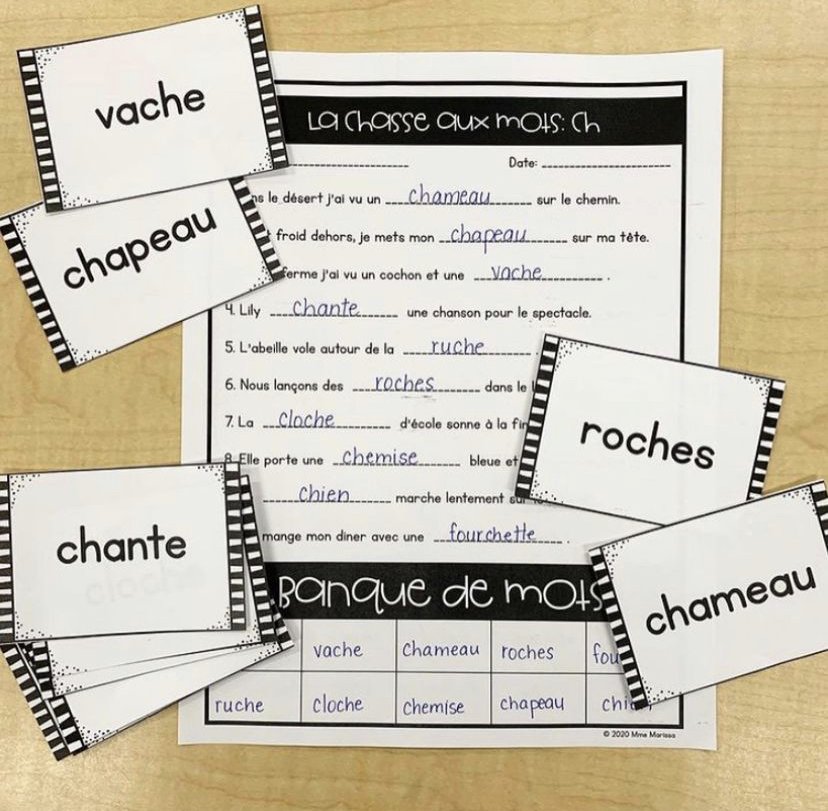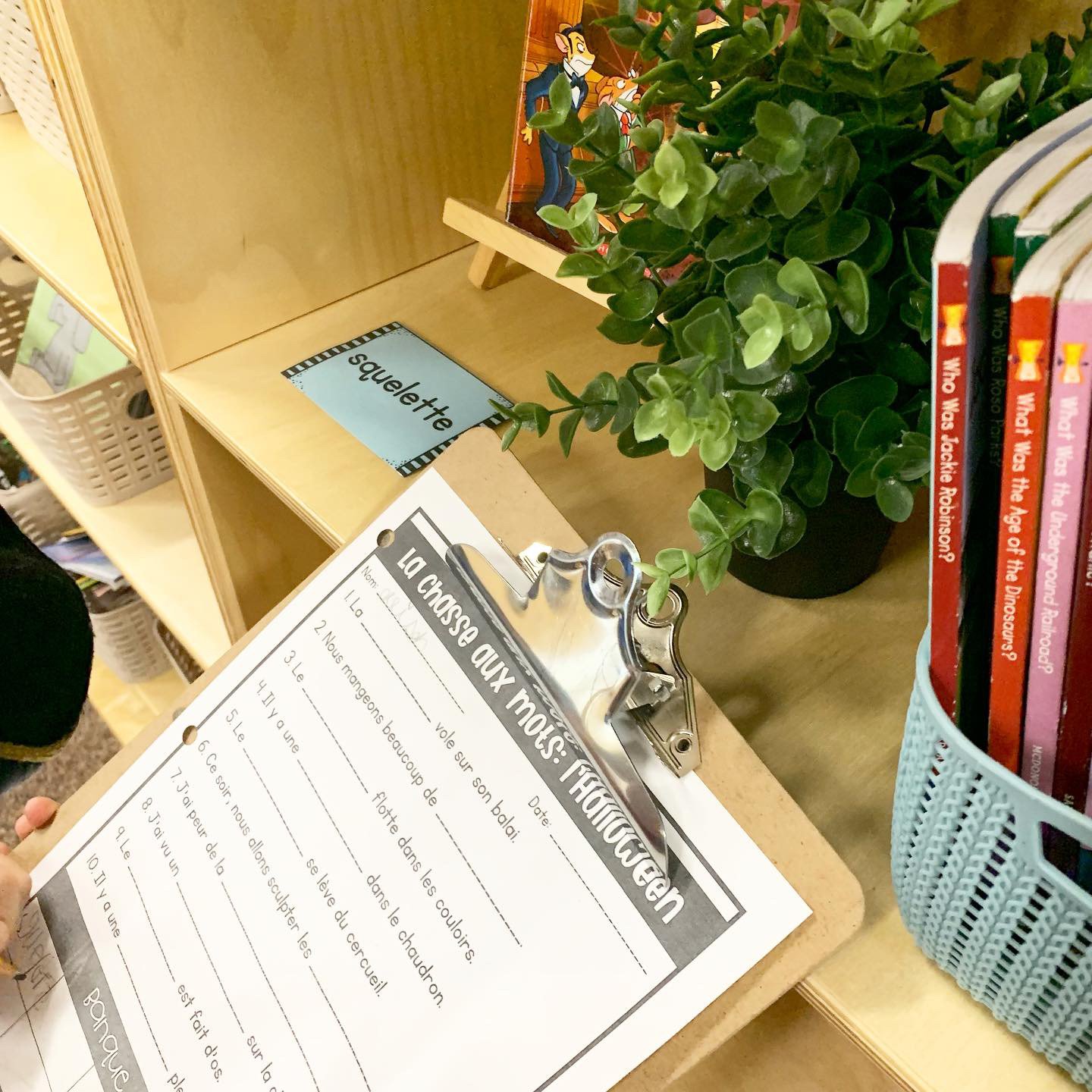My Literacy Program in Grade 2/3 French Immersion
Literacy is important no matter which grade you teach and which language you teach in. It’s even more important when you’re teaching in a second language. I’m pretty sure that we could all spend the entire day on literacy alone but, we don’t have time for that so I’m here to give you the run down of how I structure all my literacy components.
First off, I’d say I do 90% of literacy in the mornings, before recess. So from 8:30-10 something, it’s all literacy. We start morning work (which varies), next we come together for the morning meeting which hits on a lot of skills, then writing, then either grammar, vocab or reading. We know that we do literacy all day, but this is targeted time where I teach specific lessons and they have time to practice their skills.
In this blog post I will cover different things I like to do for different parts of literacy. Not every single thing happens every day or every week. Find the balance and what works for you!
We will cover:
My general weekly schedule
CBE Structured Literacy Program
Speaking
Writing
Reading
Grammar
Vocabulary development
Oral comprehension and production (outside of the explicit speaking block)
My weekly schedule
Below is my weekly schedule this year and includes everything, not just literacy. The times are rough, sometimes we get through things faster, sometimes it’s slower or I decide to extend an activity. It’s just a guideline. Also, I know that some schools require you to do literacy at specific times or that your literacy is one continuous block. I get to decide my schedule, apart from my preps.
You’ll notice I have “français” as a block. That’s a flex term for anything français related, mostly it’s when I do speaking, grammar or group reading comprehension/reading skills.
Note: This exact schedule was from a straight grade 3 class so there was more English than when I've had a 2/3 class. Friday morning would be French if I had a 2/3.
Calgary Board of Education (CBE) Structured Literacy Program
I started using the UFLI program in English with my students and loved the structure (I am the structure queen, after all). When I saw that the CBE was creating a French version of this type of program, I was all about it.
Each week you work on a phoneme (usually represented by multiple graphemes). We learn the rules for the spelling pattern, we segment and blend words, we write words and sentences and read words and sentences.
It’s a great opportunity for grammar hits in context. Asking them about spelling patterns for masculine or feminine or where we need punctuation. While it’s not necessarily laid out in the lesson, it was easy to add those bits in to review many concepts.
We used these dry erase pouches so that we could reuse the same paper all year.
Their program is available in multiple grades. You can check it out here. Please have a read through the information documents before beginning this program.
SPEAKING
Truth be told, I had never really explicitly taught speaking for the first few years of my career. I mean, we speak all the time and I have always had some speaking activities in my morning routine but…an actual speaking block, not until this year. I went to several pro-d workshops about the AIM Language program created by Wendy Maxwell. I have incorporated a 15 minute speaking block 3-4 times per week. I am blown away at the amount of speaking that’s happening in my class and we are working hard towards a play (as part of the program). This year we only had time for one, we did “Le chat et la lune”.
These aren’t cheap kits, and my district purchased it for us but I am totally sold, and will continue to use it. If you get a chance to attend any sessions about AIM, I would highly recommend it.
Since incorporating this speaking block, I have had to let go of some stuff, for example I am not doing grammar as intensely as I have in the past. There simply is not enough time but I am seeing the value of this program and it has grammar, reading, writing and speaking woven throughout so I figure it evens out.
Here I am helping a group out during their play performance in a 3/4 class.
WRITING
We do some form of French writing in my class 4 days per week. Depending on the activity, my writing blocks are about 20-30 minutes. We work up to this, so earlier in the year there is more lesson/demo before they write. I like to do different writing activities throughout the week.
*If I didn’t have to teach English, I would add in another day or two of writing. Since I have to balance both languages, sometimes our writing is English.
Below are some examples of different things I like to do. I don’t do all of them every week, I’ve just included them as ideas.
Journal - Open ended which is meant for them to write about anything and everything. I don’t mark this very much, it’s more about getting them to try out vocabulary, work on sentence structure and feel confident in writing. I don’t pick spelling or grammar apart.
Visual prompt - I have had huge success with offering visual prompts. These were especially helpful for my students who need a boost to get going and struggled with vocabulary. You an also find images online and go through the image together to write down vocab to create your own word bank.
Want to use them in your class? I have over 100 prompts with different themes, seasons and celebrations. Check out the full bundle HERE.
Below is an example of how I run the picture prompt in my class. First, we go over all the words that are in the word bank on the page. Next, we brainstorm other words that could be helpful when writing about this image. We find nouns, verbs and adjectives.
Writing projects - These writing projects are often done for holidays, special events or seasons and are often an extension of another activity (social studies, for example). These are great as they often include planning, and editing before making a good copy. I also have a series of writing projects that guide students in each of the writing activities.
Writing styles - Here we are learning about specific writing styles (opinion, letter, story, procedural) so we go step by step to learn the ins and outs of the text features and how to actually write in that style.
Mme McIntosh has great resources for this!
Mme Caroline also has great resources for writing styles. Linked is her narrative unit.
Story workshop - I love story workshop because it gives students so much creativity and confidence. They get to build a scene and it helps them to be able to create the story before they actually write about it. Learn more about story workshop.
The thing about prompts:
I used to always give writing prompts but I found that instead of inspiring my students, it caused them to shut down and produce very little. While a prompt can help some students get the ball going, many find it very limiting. This is not to say that I never give them parameters or prompts, of course I do, and I need to sometimes when we’re doing a writing project or learning about a specific type of writing but I like to give them options. For example, if we’re learning about procedural writing, maybe I ask them to write a procedure for making a type of food. It could be a pizza, a hamburger, a peanut butter sandwich…so we’re all in the same mindset here, but they have choice.
Vocab struggles:
Vocabulary is one of the greatest challenges when teaching writing in a second language. I like to offer them as much help with this as I can so that they can show me their writing skills, and not flop because they can’t get their words out. Firstly, I will gladly translate a word or two for a student. They know that I don’t translate whole sentences for them, but I can give them a word or help with a short phrase that might not be so obvious. I also offer tons of lexiques for writing. I have a combination from Mme Andrea (called Banque de mots on TPT) and For French Immersion (from her blog). These visual vocab cards help students so much with their writing.
My students also have access to writing folders. Inside they have basic verbs (être, avoir, re, er, ir), position words, frequent words, punctuation reminders and an auto-evaluation.
READING
I have never done guided reading. Ok, that’s not true…I did it for a few months when I moved from K to 2/3 because I just thought that’s what I had to do. Oh we have to read, guess I have to do guided reading groups. I discovered that it just didn’t work for me. Listen, if it does for you…AMAZING, but it doesn’t for me. I now do individual reading with every student. If you’re thinking wow, that sounds like a lot, you’d be right. But I feel it’s a more effective use of my time and better targets my students. If you want to learn more, you can read about how I structure my individual reading.
Because of the individual reading, I don’t have it scheduled in my day plan because it happens constantly. That being said, I do like to teach some explicit skills, especially related to reading comprehension with my whole group. Usually once per week we do a reading comprehension text with questions. On my schedule, that would be a “français” block. I have students take turns reading out one sentence as we go through the text. Then we read the questions and try to find the answers in the text. When we do, we underline key information to help us write a complete answer. We will also do things like reading a short passage and drawing what it’s about.
When I do read alouds, I also use this time to focus on reading skills. I ask them to make predictions, answer questions, ask them what they notice in the images…
We work very hard on les sons composés because a solid knowledge of the sounds makes reading and writing so much easier. My French sound resources and my French sound assessments for FREE!
GRAMMAR
I explicitly teach grammar 2-3 days per week and we do little grammar hits daily. Why do I spend time on this? Well, because a good understanding of grammar helps students with their reading, writing and oral production. French grammar is also different than English grammar so it’s important to me to spend time on this. Hello…masculine and feminine!! I’ve found that spending time explicitly teaching grammar has improved the overall confidence of my students. Let’s face it though, grammar isn’t a favourite topic of many, so we only spend 15-20 minutes on this. On my schedule it would be a “français” block.
I mainly use two things to teach grammar. First, I use my Phrase du Jour which is part of my morning routine. This is meant to be quick and reinforce skills in context. Secondly I use my French Grammar Units. In all honesty, my first year teaching these grades was a train wreck. I had no idea what I was doing and threw in random bits of grammar without any real flow or structure. Now, I have a structure that flows from one unit to the next and students learn what to expect. We learn through a lesson, examples, writing activities, worksheet activities, digital games, write the room etc. so that students are able to work on the skill in multiple ways.
Want to learn more about my grammar program?
*Note: Since introducing my speaking block this year, I have been doing less grammar so the 3-4 days is no longer realistic. We do maybe 2-3 days plus our phrase du jour grammar each morning.
VOCABULARY BUILDING & WORD WORK
As I mentioned above, vocab is one of the biggest issues we have when teaching French Immersion. Students want to be able to speak or write but they just don’t have the words to express themselves. This is why vocabulary development is so important.
In short, vocabular development happens all day, every day. But…there are some things I do that build on it a bit more explicitly.
Songs & Poems
As part of our morning routine we do songs and poems. I usually like to teach 2-3 songs and poems per month. The poems are from so many different resources and I have thematic ones and sound based ones. Here is my list of songs I use throughout the year.
Dictée & orthographic mapping
I realize that dictée is not everyone’s cup of tea and I am not here to argue for or against it, you can make up your own mind on that. I did it for many years and decided not to do it last year. There was just too many other things to do. I still used my lists and we used them for morning work activities but they weren’t quizzed on them at the end of the week.
When I have done a weekly dictée in my class, it was based either on a sound or a theme (holidays and seasons). My aim is to develop vocabulary and we practice these words of the week in many ways including putting them in alphabetical order, writing sentences with them and even doing orthographic mapping. You can read more about how orthographic mapping in French Immersion here.
*Learn more about my weekly dictée program in this blog post.
Looking for more mapping activities? These “map the room” are a fun way to get moving while also practicing breaking down words! Available individually or in the bundle.
Hide the cards around the room, then students will go looking for them and map the word that they find.
This could be done in a write the room style, centre, small group or whole group. An easy activity to leave for a sub!
Vocab in context - La chasse aux mots
One of my favourite products I’ve ever made is the Chasse aux mots. It’s a twist on write the room so it has students up an moving around searching for words. They write the words in their word bank and then put them into the sentences based on context. This is another way we add a bit of sneaky reading comprehension to the day. La chasse aux mots is available in sounds, themes and celebrations.
Read alouds
Read stories to your students! They learn so much from stories and they have the aid of the pictures or illustrations to help with their understanding. It’s also important that they hear YOU read as that will help them with their oral abilities.
Thematic word work
The trouble with teaching a 2/3 split (at least in BC), is that grade 3 students get English instruction while the grade 2s do not. What do I have my grade 2 students do while I was busy with the grade 3s? I got them working on some thematic vocab in their activities booklet. These are also great early finisher activities.
French shows
Sometimes I’ll let them watch something while they eat their lunch. They love Toupie et Binou, Théo le loup and Monsieur Steve (all on YouTube).
ORAL COMPREHENSION & PRODUCTION
Let’s face it, oral comprehension happens all day, every day. Sometimes I will do explicit things like listen to me read sentences and they have to draw what I say.
Other than the explicit speaking program I mentioned earlier, here are a few more activities that can help with their oral skills.
Word of the day
Each day during our morning routine, I give a word (ie: ballon) and students need to say any sentence that contains that word. It can be le ballon, les ballons, un ballon…it doesn’t matter as long as they make a sentence with it.
Find the difference
You can find plenty of these find the difference videos on YouTube. Students have to share what they notice orally.
Image prompts
Display an image of anything, a scene, an animal, a meal…and students need to describe what they see orally.
Oral presentations
We do a scientist of the week every week from January to June. Students are expected to demonstrate their experiment and explain what they’re doing in French. They have support from their poster and me, it’s not a long and memorized presentation at all! I know some teachers might have students present about themselves, do an oral book report or recommendation or present an animal, holiday or province that they did a research project about.
Reading aloud
While this is not original oral production, it’s still a skill to be able to read out loud. We do this a lot during group readings, poems etc.





